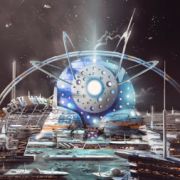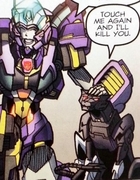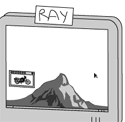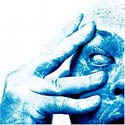|
 Arkham Horror: The Card Game is a cooperative Living Card Game from Fantasy Flight Games where 1-4 players take on the role of investigators trying to unravel mysterious plots in and around the 1920s Lovecraftian town of Arkham, Massachusetts. The game's most compelling features are its rich narrative and its campaign mode where a number of games are played in a series, with the results of the decisions you make in one game carrying over to future games. Players are able to upgrade their decks with more powerful cards over the course of a campaign, but as your deck becomes stronger so too do the eldritch forces pitted against you. I figure anyone browsing this thread on this forum is probably already aware that this game exists, so the purpose of this post is to provide an overview of how it plays in order to help you decide if you want to give it a shot. One thing I will say right away is that it plays quite differently at each player count and that it's an excellent single player game, with true solo and two-handed being very popular ways to play. The old thread can be found here. ==================== How to Play The Arkham Horror LCG is played over a number of rounds which are divided into four phases, the most important of which is the Investigation Phase. During this phase, each player takes their turn by performing up to three actions. Possible actions include playing or drawing cards, gaining resources, activating abilities, fighting enemies, investigating your location for clues, or moving to a connecting location. Before the game begins, however, you must choose an investigator and build a deck according to the instructions on the back of their card.  Investigators have four different skills: Willpower, Intellect, Combat, and Agility. They also have health and sanity values and unique abilities. After building your deck it's time to pick a scenario to play. Follow its setup instructions to create the encounter deck and put the agenda and act decks into play.  The agenda deck represents the progress made by the dark forces of the Mythos. During the first phase of each round (except the first round of the game) one doom token is placed onto the current agenda, then the doom threshold is checked to determine whether the agenda will advance. In the example above, the agenda "What's Going On?!" will advance when the third doom token is placed onto it, which means it is flipped over and any triggered effects mentioned on the back of the card are resolved. It is then put aside and the next card in the agenda deck becomes the current agenda. The scenario ends when the final agenda advances, which is usually a bad thing for the investigators. The act deck represents the progress made by the investigators towards solving the mystery or achieving their objectives, and if the final act is advanced the scenario ends in a more favorable way. To advance the act, the investigators collect clues from the locations they visit by performing investigate actions. In the above example, investigators can advance the act, "Trapped", when they collect two clues for each investigator in the game.  As part of the scenario setup you will be instructed to put a number of locations into play, with one location designated as the starting location for the investigators. Each investigator has a minicard which you place on or at a location to indicate their current position. Locations are connected to one another by the colored symbols shown in the top left corner and along the bottom of the card. Locations have two sides : unrevealed and revealed. Most locations enter play on their unrevealed side, and when an investigator moves to one for the first time it's flipped to its revealed side. When this happens clues are placed onto it according to the number on the right-hand side of the card. In the example above, two clues are placed onto the Study for each investigator in the game. Locations also have a shroud value, which represents the difficulty of discovering clues using the investigate action. To investigate a location an Intellect skill test is performed, which compares the investigator's Intellect value to the shroud value of the location (the number on the left-hand side). Skill tests are performed very frequently and they often determine the outcome of your actions as well as the outcome of certain situations presented by the game. When a skill test is initiated an investigator may commit cards from their hand to boost the stat they are testing. If Roland Banks investigates the Study he may commit Eureka from his hand to boost his Intellect by one because it has one Intellect skill icon. It also has Willpower and Agility icons, but they only apply to skill tests which test those stats.  After committing cards to the test, the investigator must then draw a chaos token from the chaos bag and apply its modifier to the skill value. If the modified skill value is equal to or higher than the difficulty of the test the investigator succeeds and, in the case of an investigate action, they discover one clue from the location. After the test ends, any cards committed to it are discarded.  The chaos bag contains tokens with mostly negative modifiers as well as several with symbols which have scenario-specific effects. There are often multiple tokens with the same number or symbol in the bag, but there is only ever one copy of the Elder Sign (blue) or Autofail (red) tokens. When drawn during a skill test, the Elder Sign token provides a beneficial effect which is unique to each investigator (the particular effect is indicated on their card with the Elder Sign icon). And when the Autofail token is drawn, the test fails no matter what your skill test value ended up being, as you might've guessed. The Next Round The first phase of each round is the Mythos Phase (except for the first round of the game where it is skipped). This is the phase where doom is placed onto the agenda and its threshold checked, after which each investigator draws a card from the encounter deck and resolves its effects. Encounter cards come in two varieties: Treacheries and Enemies.  Treacheries typically require you to perform a skill test to avoid something bad happening. In this case, if you fail the Willpower test on Rotting Remains you will gain horror tokens equal to the amount you failed by. If you ever have an amount of horror equal to or greater than your sanity value (or damage equal to or greater than your health value) you are immediately defeated and the game is over for you, but if there are other players in the game they can keep playing. If you draw an enemy from the encounter deck it is placed in your threat area, which is simply a game zone in front of you. The enemy is considered to be engaged with you, which means if you perform any action other than a Fight or Evade action (or the less common Parley or Resign actions) that enemy will immediately attack you; this is called an Attack of Opportunity. When an enemy attacks you, you gain damage and horror tokens equal to its damage and horror values. The Ghoul Minion enemy has damage and horror values of one each, as indicated by the icons in the middle of the card. It also has a fight value, a health value, and an evade value, each of which is listed at the top of the card from left to right. To fight an enemy you perform a Combat skill test against its fight value, and to Evade an enemy you perform an Agility test against its evade value. If you succeed at a fight action you deal one damage to it, and if an enemy ever has damage equal to or greater than its health value it is defeated, which means it is placed in the encounter discard pile. If you succeed at an evade action you don't deal any damage to it but you do disengage from it and it becomes exhausted, which is a game effect where its card is rotated 90 degrees. Exhausted enemies cannot engage any other investigators and they cannot attack later on during the Enemy Phase, but during the final phase of the round, the Upkeep Phase, all exhausted cards are readied (or returned to their upright positions) and it will then immediately engage any investigator at its location. Some enemies also have the Hunter trait, which means they will move around of their own accord to chase you down, so evading enemies is often only a temporary solution for dealing with them. ==================== Building a Deck The three main types of player cards you can add to your deck are Assets, Events, and Skills.  After paying the cost for an asset (the number in the top left corner) it enters play in your play area and generally remains there until a game effect causes it to leave play. Assets often provide long-term advantages whereas events are played for an immediate effect and then discarded, which is not to say they aren't impactful, but rather that you will want to strike a balance of both in your deck. Assets and events often have skill icons on them which means you can commit them to skill tests, but only skill cards provide effects which trigger off the results of a test. Most decks will have fewer skills than assets or events but they are still an important part of your deck and they often provide the best means for passing critical tests. When you first start playing you will probably make use of one of the pre-constructed decks in the core set. They're designed to be functional but after your first game or two you will probably start to get a feel for which cards are worth keeping and which ones you should swap out. Deck-building is a huge topic so I won't go into any more detail about it here, but it is one of the most interesting things about the game to discuss so if you have any questions by all means ask the thread. Strengths and Weaknesses Each investigator comes with a number of signature cards (usually two) which must be included in their decks. At least one of these cards provides a beneficial effect for them, and they're some of the most powerful and fun cards in the game.  The other signature card which must be added to your deck is your investigator's Weakness, which causes a debilitating effect when drawn. And in addition to that unique weakness you must also add one Basic Weakness to your deck, chosen from a pool consisting of all the ones you own.  Going the Distance The final game concept I'll mention is the campaign mode, which consists of eight separate scenarios played in sequence. At the end of each one you earn experience points based upon how well you performed, and you can then use that XP to purchase upgrades for your deck. Each player card in the game has a level (except for investigator signature cards) from zero to five, with your starting deck being composed only of level zero cards. To purchase an upgrade simply spend an amount of XP equal to that card's level to add it to your deck.  When adding cards to your deck you must maintain the same deck size you began the game with and you can only have two copies of any one card by title, so when you add a new card to your deck you must remove an old one. In the above case, when you add a copy of the .45 Automatic (2) to your deck you must remove a copy of the original level zero version. Some cards also have multiple versions at different levels, in which case you only need to pay the difference in XP when upgrading them. And with all of that now out of the way, it's time to meet the investigators of Arkham Horror: The Card Game! ==================== The Investigators of Arkham Horror: The Card Game The Arkham Horror Expanded Universe consists of a number of different games going back to the original Arkham Horror board game from 2005, all of which share the same pool of investigator characters. In the LCG these characters are divided into five classes: Guardian, Seeker, Mystic, Rogue, and Survivor. I'll show a few examples of each from the current cast along with some of the more iconic cards from their class. Guardians Guardians put themselves in harm's way to protect others. They have the biggest guns and the tankiest allies, and they never back down from a fight no matter how many monsters stand in their way. Their primary stat is Combat.   Seekers Seekers are obsessed with solving mysteries and gaining knowledge, whether it be from the local library or an ancient temple filled with forgotten lore. When it comes to discovering clues, nobody does it better. Their primary stat is Intellect.   Mystics Mystics are drawn to and influenced by the arcane forces of the Mythos. Talented spell-casters, they often risk their own sanity in the pursuit of greater power and knowledge. Their primary stat is Willpower.   Rogues Rogues are in it for the money, and for themselves. Whether it's slipping away from an enemy or engaging in legally questionable activities, they do everything in style. Their primary stat is Agility.   Survivors Survivors are your everyday people caught in the wrong place at the wrong time. They get by through sheer determination, and a little bit of luck, rising to the occasion when put to the test. They don't have a primary stat.   Tips for Getting Started The Arkham Horror LCG is often considered to be a difficult or punishing game to play, and while that is thematically appropriate given the subject matter you may find that small comfort if you keep ending up on the wrong side of the flesh-eating ghoul. The best piece of general advice I can offer is that the game is designed so that if you fail a scenario, or even multiple scenarios, it doesn't mean the campaign is over. Across all of the campaigns in the game there are relatively few scenarios in which a bad resolution will end your campaign outright, and at its core the game is all about making the best of a bad situation. Having said that, the best piece of specific advice I can offer is to think about the concept of action economy. You can typically only perform three actions per turn and the sooner you advance the final act the better off you'll be, so ideally you want each of your actions to be meaningful in order to bring the game to that favorable resolution as quickly as possible. In practice, this means a few things. The first is that you shouldn't choose to perform skill tests unless you have a good chance of passing them. Performing a skill test at parity usually has a low chance of success, so instead of doing that try gaining resources or drawing cards so that you can play or commit something which will help you succeed. The second thing to consider is that the basic investigate action gives you one clue, the basic fight action deals one damage, and the basic resource and draw actions give one resource and one card. This essentially means that the value of one action is equal to one of those effects, which in turn means that any card which allows you to gain more than one clue or deal more than one damage using a single action puts you ahead of the curve. Also, some abilities don't cost any actions to use so they can be particularly valuable for increasing the efficiency of your deck.  Here are some other general tips:
Common Mistakes The Arkham Horror LCG is a complex game with a large number of rules so when starting out it's pretty easy to make a few mistakes. Here are some of the more common ones:
==================== Buying Guide If you've decided you'd like to try the game the first thing you'll need is a copy of the core set. The Revised Core Set includes two copies of all the cards from the original core set plus several additional cards from the first expansion cycle. Most online vendors will list this product as "Revised Core Set" but the packaging for the box looks pretty similar to the original so if you're in a store make sure you get the right one by checking that the back of the box looks like this:  The core set comes with three introductory scenarios which are each designed to teach you something about the game. If you make it through that and want more then it's time to embark upon a full-length campaign! Here's a brief description of each one, in release order. The Dunwich Legacy begins with a missing persons case which eventually leads you to the small, secluded village of Dunwich, where things aren't quite as they seem, because monsters live there. The Path to Carcosa has you attend a theatrical production of The King in Yellow, followed by a delightful dinner party where things aren't quite as they seem, because monsters live there. Or do they? You may find yourself doubting your own convictions as your path takes you from Arkham to Paris and beyond in search of answers. The Forgotten Age is a pulp adventure set in the uncharted rainforests of Central America. When a scientific expedition discovers ancient ruins belonging to a forgotten Aztec city-state, what lengths will you go to to uncover the secrets that lie within? The Circle Undone features a coven of witches and a secret cabal known as The Lodge vying for power in and around Arkham. Whose side will you take? The Dream-Eaters has a unique design consisting of two 4-part campaigns. In one of those campaigns you will explore the Dreamlands, the hidden realm beyond the waking world with such fanciful locations as Ulthar, a town full of talking cats, and... the Moon? The Innsmouth Conspiracy finds you waking up in an underwater cave system beneath the seaside town of Innsmouth with no recollection of how you arrived there. Featuring scenarios that alternate between the present and your recent past, will you recover your memory in time to identify the threat below the waves, or will you end up in a watery grave? Edge of the Earth takes place in Antarctica as you join a scientific expedition searching for an ancient city discovered in the ice. In each scenario, one of nine different partner allies can accompany you, but the icy wasteland is a dangerous place and your actions will determine not only their fate but that of the entire expedition. The Scarlet Keys is a globetrotting adventure in which you hunt down a number of powerful artifacts known as Keys on behalf of a shadowy government agency. Featuring a nonlinear campaign design and a greatly expanded narrative, will you discover the source of the strange events occurring all over the world, or will you disappear without a trace? The Path to Carcosa is the thread's most recommended campaign for new players. The Dunwich Legacy is a fine campaign and it has a lot of staple player cards so it wouldn't be a bad first pick as well, but it shows its age, design-wise, compared to the more recent ones. The Forgotten Age has some unusual enemy designs and its difficulty is very front-loaded. The Circle Undone is more technically complex than the others, and The Dream-Eaters contains two separate campaigns which only superficially interact with each other (or not at all if you choose to do them completely separately). Edge of the Earth provides the best experience this game has to offer, but its set of investigators have complex deck building requirements, and The Scarlet Keys has a very nonstandard campaign design. It used to be the case that each expansion cycle would begin with a deluxe box followed by six smaller packs, but beginning with Edge of the Earth the distribution model now consists of two boxes only: the Investigator Expansion, which contains all of the player cards, and the Campaign Expansion, which contains only the campaign cards. All of the older expansions up to The Circle Undone have now been re-released in this format, leaving The Dream-Eaters and The Innsmouth Conspiracy as the only two remaining under the original format. There are also "Return to X" boxes, which are supplemental encounter and player cards for the original campaigns up to and including The Circle Undone. They generally fix minor issues and enhance the replayability factor but don't necessarily increase the difficulty. Every year at Gencon they also announce a Standalone scenario pack which consists only of encounter cards, though most of them also have a few player cards as rewards for completing them successfully. These scenarios are generally pretty hard as they're balanced around having a certain amount of XP, and you can choose to play them in between campaign scenarios or by themselves using the game's Standalone rules. In release order, they are: Curse of the Rougarou, Carnevale of Horrors, The Labyrinths of Lunacy, Guardians of the Abyss, Murder at the Excelsior Hotel, The Blob That Ate Everything, War of the Outer Gods, Machinations Through Time, and Fortune and Folly. If you want to try one of these, pick up Murder at the Excelsior Hotel or The Blob That Ate Everything first. And the final product to mention is the Investigator Starter Decks:  These packs are designed for new players as they consist of full decks ready-to-play, including a selection of higher level cards to upgrade into. They have some of the best cards in the game and are very much worth picking up if you can find them. ==================== Useful Links
Kalko fucked around with this message at 06:24 on Oct 23, 2023 |
|
|
|

|
| # ? Apr 29, 2024 05:05 |
|
============================ Rules Clarifications and Examples ============================ Timing Timing in Arkham Horror: The Card Game revolves around the concept of Player Windows. During a Player Window, you may play Fast cards and activate free trigger abilities (you may activate reaction trigger abilities any time their condition is met). Unless otherwise noted on the card, if there is no Player Window you cannot play Fast cards or activate abilities. This means...
The following two charts are taken from ArkhamDB. Phase Sequence Timing  Skill Test Timing A common way to get around the fact that you cannot play Fast cards or activate free trigger abilities outside Player Windows is to initiate a skill test. During a skill test, there are two Player Windows where you can play any number of Fast cards or abilities regardless of whether they have anything to do with the test in question.  When, At, If and After Game effects can trigger "when", "at", "if" or "after" certain conditions are met. If multiple effects trigger from the same event or condition they should be resolved in the following order: When > At = If > After If multiple effects trigger at the same timing interval, the players can choose to resolve them in any order. However, any Forced trigger events at a particular timing interval must be resolved before any non-Forced events at that same interval. Kalko fucked around with this message at 06:13 on Oct 23, 2023 |
|
|
|
Such a good game, nice to have a shiny new thread. The Arkham Cards app I think warrants a mention in the OP, I haven't used it a huge amount but it does a ridiculous number of things. You can use it for a chaos bag, take notes for your campaign log, it provides the scenario instructions (with narration if you subscribe to the Mythos Busters patreon), it does deck building and syncs with ArkhamDB I think... I'd also suggest mentioning the Drawn to the Flame and Mythos Busters podcasts in the resources section. Ripley fucked around with this message at 09:31 on Jan 3, 2022 |
|
|
|
They finally put goofy Not Indiana Jones in the game, I'm gonna have to get back into it.
|
|
|
|
I bought the revised core set and played the first scenario twice and think I got the authentic experience both times. Game 1 with the Fed, I finished on my last available action before dying, only succeeding because my first 3 assets were his pistol, a magnifying glass for the investigations, and a beat cop to help fight. Game 2 with the Librarian, my second bad card drawn was a medium difficulty enemy, and I then drew both of her weaknesses. I was able to evade it twice, but wasn't able to accomplish much before it killed me. I looked through the starter deck and didn't really see the resources to deal with both it and the boss, which is why the book recommends the Fed if you are playing solo. It was fun, and I look forward to dragging my Marvel Champs friends into it.
|
|
|
|
|
The first thing youíll learn is that the starter decks are designed around what comes in the box, not what is best for each character. Same with marvel champions. Itís a little more blatant there because youíll end up with three copies of cards that say ďone per player in playĒ. Iím not sure how I would build a solo Daisy deck. The only seekers I think can solo are Amanda, due to her flexibility, Joe because of his fighting, and Ursula because she can outrun her problems. If you play again, you might want to bring two investigators, like Roland and Wendy or Roland and daisy. Playing two handed is easier than in marvel because youíre not trying a new hand every turn.
|
|
|
|
Yeah next time I play solo I'll probably play 2 handed. I'll have to move to a gaming table over my old timey writing desk with my grandfather's lamp, so I'll lose some atmosphere there. I am curious about something else. When playing on hard mode with the chaos bag heavily tilted against you including -6s and -8s are there good enough cards that the best players can get around that, or are you expected to level up and use higher level cards, or more inquisitors working as a team, or even all of the above?
|
|
|
|
|
The hard bag doesnít usually include a -6, sometimes the symbol tokens can get that bad but rarely in the first adventure. You can succeed there by playing to your character strengths: either playing characters like Minh or Silas who give you more out of skill cards, playing cancels and automatic effects, by getting your numbers up ridiculously high (with skill commits, or changing your stat values with things like Money talks and well-connected.) Itís also easier to employ fail to win strategies with survivors if the bag doesnít have a +1. In Mystic, you can trap bad tokens, which can take out nasty things that penalize you even if you succeed on your test. Itís costly but with a team doing it, you can remove one of the most swingy parts of some scenarios. Someone explains how to do this in Arkham database with a deck called seal team. Expert, with the -8, opens a few strategies (Hit Me and the rogue card that lets you turn a negative into a positive), but at that level, youíre executing specific decks and taking as few tests as possible. Thatís why I normally play 2-3 players on hard, you get a challenge but multiple paths are open. Since Innsmouth has come out, thereís one more strategy: massively changing the bag. Survivors and guardians have the technology to add a lot of blessings, which with a two XP upgrade can become auto succeeds on any test you have a prayer of passing. In regards to XP, there are no campaigns that are unbeatable, even on expert, starting in zero XP. According to a new edge of the earth card, the trade-off for XP is roughly 3XP for two trauma, and bringing characters from previous campaigns definitely skews that curve. Still, itís a better option than every campaign ending with you dying/retiring even if you succeed. Golden Bee fucked around with this message at 19:40 on Jan 3, 2022 |
|
|
|
In terms of difficulty the difference between easy and standard is probably the smallest, and primarily easy is there to get you familiar with the game and compensate having a shallow card pool. The difference between standard and hard comes primarily from using the other side of the scenario card. Yes the chaos bag gets a bit worse, and often the sweet spot for how much to be up on tests shifts up one (often 3 over rather than 2 over), but if you are running efficient decks and have some experience with the game you'll manage. So the difficulty jump really depends on the scenario, as the design for the special tokens on hard vs normal can vary quite a bit. Recommended once you get good at the game, especially if you tend to play in bigger groups. The difference between hard and expert is all chaos bag and also it's the biggest difference in chaos bag between any 2 difficulties. Effectively you're just playing most tests as if there are at least 3 autofail tokens in the bag, sometimes more. If you're very good at the game and want to play the best investigators that otherwise make the game too easy, especially in a big group, then this might be the balancing factor you need. Still going to be a lot of variance though. Or it can be an interesting deck design challenge to try to specifically make decks that can still pull off consistency on this difficulty, going big on doing things without tests. My personal problem with the latter is that once you've kinda solved that puzzle you're also playing what are likely just the most consistently succesful decks in the game, and unfortunately that only leaves you with a rather small subset of the total investigator- and cardpool as viable to even try out. More fun to figure out how to make other poo poo good enough than fully optimizing in this particular game imo.
|
|
|
|
Thanks for the replies. I have a ways to go before I mess with the difficulty but I was wondering how it worked since the bag change seemed pretty brutal per the instructions. We've tried Marvel's higher difficulty settings but prefer just messing with hero-villain combos we haven't tried yet. We'll see if we get into this game as much.
|
|
|
|
|
Ripley posted:Such a good game, nice to have a shiny new thread. I've added this stuff. What are the podcasts like? I've known about them for ages but never actually listened to them, but I have watched a couple of their Youtubes around spoiler time.
|
|
|
|
Kalko posted:I've added this stuff. What are the podcasts like? I've known about them for ages but never actually listened to them, but I have watched a couple of their Youtubes around spoiler time. "Playing Board Games" is another nice YouTube channel with tons of Arkham content including build guides, tier lists, campaign/scenario reviews, and let's plays.
|
|
|
|
Now I feel silly for buying two core sets a while back. Edit: On the upside at the FLGS I found all the sets for the Innsmouth cycle so that's cool. Dawgstar fucked around with this message at 04:55 on Jan 5, 2022 |
|
|
|
Kalko posted:I've added this stuff. What are the podcasts like? I've known about them for ages but never actually listened to them, but I have watched a couple of their Youtubes around spoiler time. Thank! Oh, Arkham Cards is on Android too - I should've done the homework and given you a link, sorry. https://play.google.com/store/apps/details?id=com.arkhamcards I've listened to a lot of Drawn to the Flame, it's two British guys talking about a specific topic each episode, e.g. going through the cards from a new pack, discussing a specific investigator or campaign, or digging into a gameplay question in depth. Recommend trying episodes that seem interesting if you want some quiet thoughtful chat about Arkham. I'm less familiar with the Mythos Busters podcast, someone else would have a better take on that.
|
|
|
|
I have the original core set. Is there any compelling reason to buy the revised one instead of a second core set? I know it comes with a bag and a better insert and little things like that, but none of that seems necessary for me.
|
|
|
|
Not really unless you play 4p.
|
|
|
|
Macintosh HD posted:I have the original core set. Is there any compelling reason to buy the revised one instead of a second core set? I know it comes with a bag and a better insert and little things like that, but none of that seems necessary for me. There are a couple of additional cards thrown in (eg charisma, lockpicks lvl1), but they can be acquired in other sets The biggest difference is that it comes with 2 copies of every card. So if you have two copies of the original core set thereís no reason to get it. Otherwise you probably wanna get another copy of either core set so your decks can be bit more consistent
|
|
|
|
Ripley posted:Thank! Oh, Arkham Cards is on Android too - I should've done the homework and given you a link, sorry. https://play.google.com/store/apps/details?id=com.arkhamcards Mythos Busters is fine but you need to skip the first 45 minutes of every episode at least before they get to the point.
|
|
|
Kalko posted:[*] Stackham Horror shows stock availability for a bunch of online stores. Since getting interested in this game a month or so ago, I haven't been able to get this website to load. Is it down or is it just me? I just finished grabbing the LOTR LCG sagas so I'm set for that franchise for a while, Arkham is next. Anyone have an opinion on Carcosa vs Edge of the Earth as our first main scenario? Carcosa's story looks more interesting to me, but Edge has more recognizable characters. It looks like everything is currently available from my usual haunts (aside from the novellas with the promos).
|
|
|
|
|
Theyíre both fine as long as you can get the entire kit.
|
|
|
|
stackham horror's webmaster took it down last month as it will not be necessary with the transition to two boxes for expansions
|
|
|
|
Seems like an odd choice since itíll probably be years before the new format catches up with all releases
|
|
|
|
Ah, I didn't know that. I've removed the link. Now that the new year is here I wonder when we'll get our first new product announcement. Return to The Dream-Eaters didn't appear in the Asmodee price list leak from a few weeks ago, but then a lot of other existing products didn't appear so I doubt that means anything. One prediction I'm going to make is that the next investigator box will have some brand new AH investigators, because I believe out of the ten that have yet to appear in the LCG, only two of them are women and all of them are white. There was a discussion topic on the MB Discord a while ago about how there have been mentions of other investigators in the shared lore, including some which actually have names and appear in various bits of art. The only one I can remember off the top of my head is the woman from "I've Had Worse" but there was at least 1-2 others. I also remember another bit of AH trivia where Sefina Rousseau, Nathaniel Cho, and Winifred Habbamock are the only investigators created for the LCG first, since Stella Clark was made for AH3e. But then Sefina appeared in Eldritch Horror only six months after the release of Carcosa and you would probably assume their character development pipeline is shared across all of the different games, so in the end it probably doesn't mean much.
|
|
|
|
So far Trish and Mary nun and gunning through Path to Carcosa has been pretty fun. Mary should have favor of the sun (maybe Nephthys if we got enough from final King) and I'm trying to take Trish mostly testless with curse backup. I now realize that the act card never tells you to advance it, which is why it mocks you for reading the back.
|
|
|
|
Thereís a custom campaign that has a similar trick, but you get to heal one mental trauma.
|
|
|
|
bagrada posted:Since getting interested in this game a month or so ago, I haven't been able to get this website to load. Is it down or is it just me? One thing I will caution about the Edge of the Earth investigators is that they're a little more advanced, deckbuilding-wise, than most of the prior investigators. Barring a few exceptions, most investigators follow a fairly standard deckbuilding formula - level 0-5 cards of their class and Neutral cards, level 0-2 cards of a secondary class. The Edge of the Earth investigators are all limited to level 0 cards of their class, and level 0-5 cards of their secondary class (only 5 level 0 cards though) and Neutrals, the idea being that they start out as one class and slowly transition to another as they level up. It's not that much more complicated, and EoTE gives you a lot of multiclass cards to help you out, but it's still something to keep in mind.
|
|
|
|
also, the growing multiclass investigators own to build for. feels very different and weird.
|
|
|
|
Which of the side scenarios are least likely to kill your investigators on a failure? Probably going to introduce the concept of them in this Carcosa campaign. Blob and Egypt are probably right out for a first run.
|
|
|
|
I don't remember Curse of the Rougarou doing a lot of killing. Lots and lots of walking and a chance of being cursed in a bad way though. My problem with the side scenario's is that they narratively just don't fit into the campaigns at all.
|
|
|
|
Douche Phoenix posted:Which of the side scenarios are least likely to kill your investigators on a failure? Probably going to introduce the concept of them in this Carcosa campaign. Blob and Egypt are probably right out for a first run. Excelsior Hotel is a pretty low-key affair. [Mild spoilers for potential penalties from it] I don't think there's any way to be killed or driven insane, and no trauma except for regular defeats. It might add one or two weaknesses to someone's deck. edit: And it's arguably a good narrative fit for early Carcosa as well, though of course it still has the "why are you going off and doing something else during this crisis" problem. NRVNQSR fucked around with this message at 15:17 on Jan 10, 2022 |
|
|
|
Yeah, the hotel would fit. People got to sleep some time, so we check in and Oops crazy people.
|
|
|
|
Orange Devil posted:I don't remember Curse of the Rougarou doing a lot of killing. Lots and lots of walking and a chance of being cursed in a bad way though. I do like the idea of being in the middle of exploring antarctica or trapped in dreams/alternate dimensions/time and just jetting off to gently caress around in Egypt.
|
|
|
|
Orange Devil posted:My problem with the side scenario's is that they narratively just don't fit into the campaigns at all. Yeah, there's really no narrative window for them in most of the recent campaigns. We've taken to lazily calling them flashbacks most of the time - "say, this reminds me of how we first met - remember when we saved the world from cultists?"
|
|
|
|
I keep forgetting just whose house it was we burned down. Didn't we flip for it over the ashes?
|
|
|
|
Orange Devil posted:I don't remember Curse of the Rougarou doing a lot of killing. Lots and lots of walking and a chance of being cursed in a bad way though. Edge of the Earth : It was all a mirage... The Dream-Eaters : It was all a dream... I got nothing for the others.
|
|
|
|
I've been replaying Innsmouth and got to Vanishing with tuned decks for it, and still got the worst ending. All locations cleared of clues, all enemies dealt with and I was forced to guess because there's no safety net for extra hints or clues like other similar scenarios. I had two names and three locations to pick from. There is the "if you investigate by 3+, look at the top of the leads deck, then shuffle" but that's once per round. Even if I gave myself seven more rounds, there's still a chance to have to just stop playing because the design means you can run out of guesses.
|
|
|
|
Thatís a tricky one, even a nearly perfect run will lead you to guessing at least half of the final answer. A real master we use Genť and lockpicks to trigger that space three or four times a game, and start guessing as late as possible.
|
|
|
|
Kalko posted:Edge of the Earth : It was all a mirage... Carcosa could be all a dream also.
|
|
|
|
Myself and 2 others have been playing this occasionally are and enjoying it quite a bit. So far we just have the revised core, The Blob That Ate Everything, and Murder at the Excelsior Hotel. We played through the core set campaign once, and just restarted it with the plan of weaving in both of the scenario packs in between the main campaign scenarios. After we finished The Gathering we went to do the Blob That Ate Everything and it seemed really cool even though we lost horribly and the entire universe was devoured. Really neat to see the creativity they can push with this game.
|
|
|
|

|
| # ? Apr 29, 2024 05:05 |
|
I love that ending for Blob. "Well, that sure escalated." That set also has the funniest card in the game:  Watch your enemies dissolve before your very eyes!
|
|
|



























